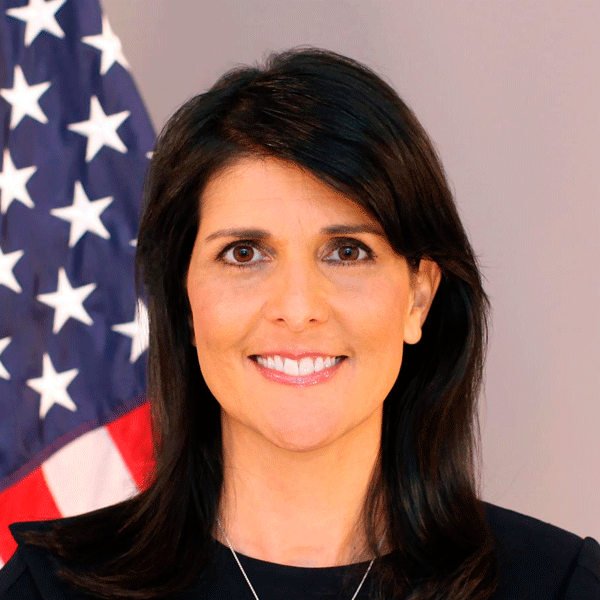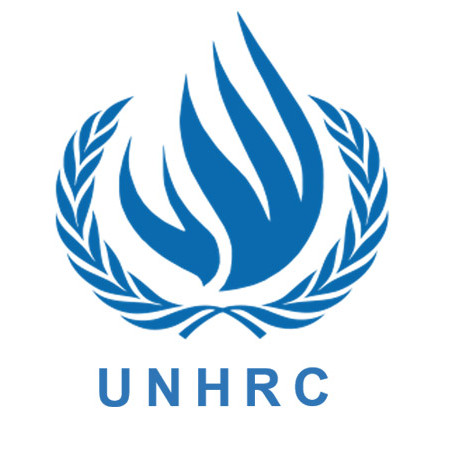
US Ambassador to the UN Nikki Haley
by Taylor Roth
On June 19, US Ambassador to the UN Nikki Haley announced that the United States is withdrawing from the UN Human Rights Council. Ambassador Haley explained that the administration’s decision to leave the body stemmed from the council’s hypocrisy, political favoritism and biased stance against Israel.
When announcing the US departure from the council during a press conference at the State Department with Secretary of State Mike Pompeo, Ambassador Haley said that the Human Rights Council has been a “protector of human rights abusers and a cesspool of political bias.” Following this sentiment, Ambassador Haley cited how abusers of human rights continue to be elected to positions of leadership within the council.
“When a so-called Human Rights Council cannot bring itself to address the massive abuses in Venezuela and Iran, and it welcomes the Democratic Republic of the Congo as a new member, the council ceases to be worthy of its name,” said Haley. “Such a council, in fact, damages human rights.”

Founded in 2006, the Human Rights Council is a body within the United Nations that was created “to work for the protection of all human rights for all people.” The UNHRC was formed to investigate allegations of breaches human rights among the 47 member states, among which include issues such as freedom of association and assembly, freedom of belief and religion, women’s rights, LGBT rights and the rights of racial and ethnic minorities.
Last year in Geneva, however, Ambassador Haley referenced three fundamental problems that prevent the UNHRC from fulfilling its obligations. These include the council’s bias against Israel, continual promotion of human rights abusers and consistent failure to address serious human rights issues from an equal and objective standpoint.
Pertaining to Israel, the UNHRC has spent an exponentially longer portion of time fixating on Israel than countries like North Korea and Syria. In fact, 47 percent of the 169 condemnatory resolutions that the council adopted on countries as of the end of May were focused on Israel, according to UN Watch.
However, unlike Syria and North Korea, Israel upholds freedom of religion, women’s rights and LGBT rights. Israel has also passed anti-discrimination laws that prohibit discrimination by both government and nongovernment entities on the basis of race, religion and political beliefs.
Freedom House, an independent watchdog organization dedicated to promoting and expanding democracy worldwide, has deemed 14 of the 47 members of the UNHRC “Not Free” in its rankings.
Although the UNHRC has been open about its scrutiny of Israel, the council has historically been modest when it comes to condemning countries that truly restrict and even deny the rights of their own people. For example, although countries like China, Cuba, Russia, Saudi Arabia and Zimbabwe have horrendous records of unequal rights for women, punishment of political dissent, religious persecution and suppression of speech, the UNHRC has never passed a condemnatory resolution focused on them.
The administration’s decision to leave the UNHRC has drawn stark criticism from America’s foreign allies. However, it is clear that Ambassador Haley believes that this step will allow for the US to play a more genuine role in promoting liberty abroad.
“We take this step, because our commitment does not allow us to remain part of a hypocritical and self-serving organization that makes a mockery of human rights,” Haley said.
Taylor Roth is a 2018 Summer Fellow.
